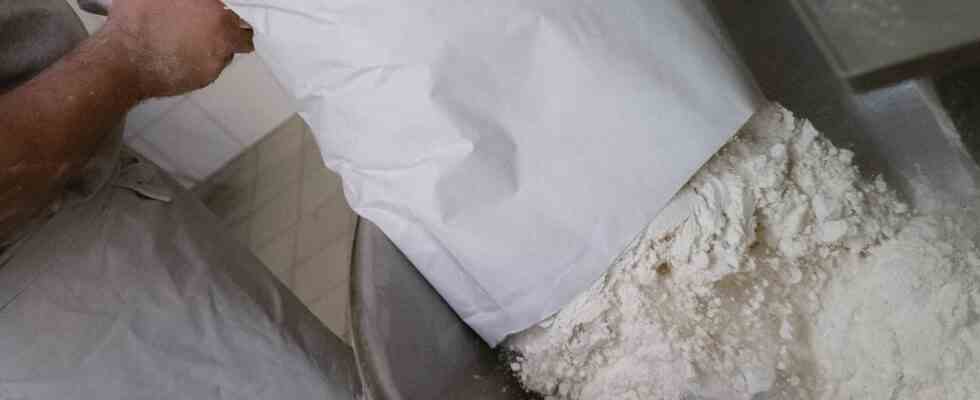Status: 07.06.2022 5:55 a.m
Russia’s war against Ukraine is also driving the price of wheat to new heights. This is also noticeable in Lebanon. Because the already crisis-ridden country obtained its wheat from the war region. A solution is not in sight.
“Five packets of bread please, why am I not getting any bread?” The customer in a bakery in the south of Lebanon’s capital Beirut is surprised: “No more bread? Already?” – “We have a bread crisis,” says the seller apologetically. A murmur goes through the line of waiting customers. It’s only late in the morning, and yet some of the bread is already sold out.
“They hardly give us any bread anymore,” complains customer Shaimaa. “Sometimes we find bread in the shops, sometimes not.” And family man Georg adds angrily: “We demand a solution. That’s enough! We’re fed up with this country. You can’t live here anymore. There’s even no bread anymore. How should you behave when you have children at home. You have to feed them.”
Baker Mohammed Shaalan stands on the other side of the almost empty sales counter and feels helpless. He ran out of flour: “We baked almost all the flour that we had today. That means after two hours there’s no more bread, neither here nor in other branches. You can’t find any bread in the supermarket either. So far we haven’t we produce up to 40,000 packages of bread a day, now not even half that. This leads to long queues. Every day people come and there is no more bread,” he says.
New sources of wheat cost money
Actually, the large bakery produces bread on the assembly line – plus cakes, tarts, petit fours. But now production has been massively shut down. 80 percent of the flour is imported into Lebanon, the majority has so far come from Russia and Ukraine. The supplies have been used up, and new sources urgently need to be found – but they are expensive.
“The flour problem is huge. The banks are not releasing the money to import flour. Actually, the World Bank has promised Lebanon a loan of 150 million US dollars to buy wheat. But this loan has to be approved by parliament and the government – and here we just had general elections. We don’t have a new government yet, it can take months. Most of these grain mills are already closed because we don’t have wheat. Also only half of the bakeries are still in operation. If we don’t import soon, have we no longer have any wheat or bread,” says baker Mohammed.
Impact of the explosion in Beirut still noticeable
About 30 kilometers to the east, on the edge of the Bekaa Valley, wholesaler Rabea al Najjar checks his flour stocks. There are still a few bags in the warehouse behind the sales room, but stocks are dwindling. On the bottles of sunflower oil, which Rabea also sells, it can be clearly read: “Product of Ukraine”. It’s similar with flour, says the flour wholesaler: “In normal times we sold 20 to 25 tons a day. Now it’s a maximum of five or six tons a week because we can’t get the flour anymore. We share what little we have from the flour mills, among our customers. We urgently need alternatives to wheat from Ukraine. And we need new silos to store imported wheat. The old silos were destroyed in the explosion at the port of Beirut. Now we don’t have any Deposits more. Politicians must provide alternatives.”
currency in free fall
But there is currently no solution in sight: the economic crisis has a firm grip on Lebanon, and the currency is in free fall. Without fresh money, no wheat imports. And without government, no help from the World Bank. Bread prices have more than doubled in the past two weeks – despite subsidies. And in view of the ailing financial situation, a new government would actually have to cut all subsidies, says economist Nassib Ghobril: “The government doesn’t have a good choice: either they continue to subsidize so that prices don’t explode any further – or they cut the subsidies and prices go up lead to an outcry from the population. There is no good alternative.”
In the meantime, a black market for bread and flour is already flourishing – with horrendous prices. Baker Mohammed is horrified to see that he can bake less bread every day. Some bakeries have given up completely. Lebanese report that they drive from bakery to bakery in vain. The alleged promise by Russian President Vladimir Putin to release wheat deliveries to Africa and the Middle East – there is still no sign of this in Lebanon. People have only one concern: that there will soon be no more bread to buy in Lebanon.
Wheat shortage due to the Ukraine war: Bread is becoming scarce in Lebanon
Anna Osius, ARD Cairo, 6.6.2022 5:47 a.m

